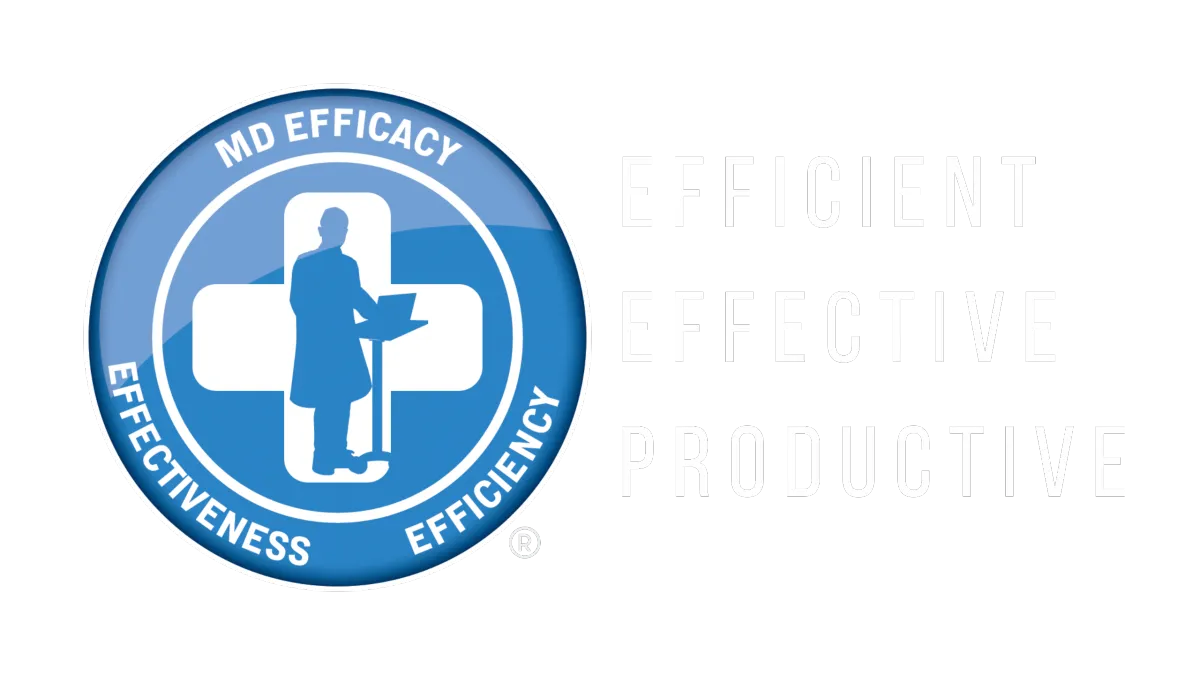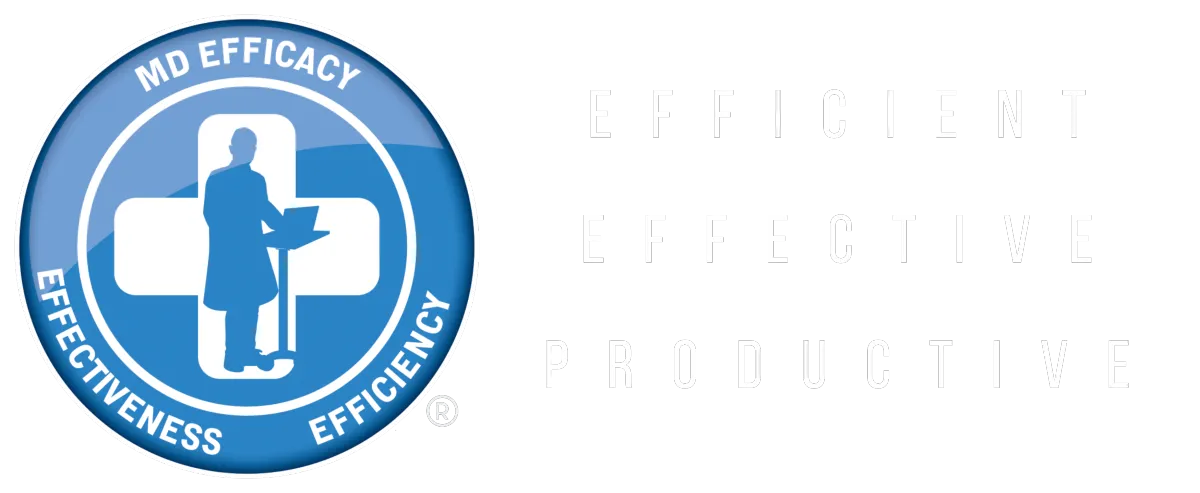US Physicians - Is Private Practice Worth it?
Posted Jan 14, 2025
Is private practice worth it? Is it the best financial choice? Is it more lucrative than working for an institution? Does it offer more autonomy? I have three main points to discuss here, and be sure to stay until the end for two big surprises I encountered on my journey to answering this question.
Hi, I’m Mike Morkos, an endocrinologist and founder of MD Efficacy, where I promote efficiency, effectiveness, and productivity for physicians.
I received a question about starting a private practice, and I want to share a fundamental step before I answer it.
First question:
1) What were your thoughts as a trainee?
What were my thoughts as a trainee about different clinical paths? During my residency and fellowship, I observed that many of my colleagues chose private practice, which seemed to offer them more autonomy and significantly higher earnings. I noticed that some opted for academia and learned that they earned much less. Additionally, others went to community institutions, where it appeared they had a reasonable income but little autonomy. In summary, at that time, money and autonomy seemed to favor private practice. At least, that was my perception back then. Was this true? Let’s see!
2) Second question: How do the numbers and finances work in private practice?
There are foundations to understand: There are two primary payment models in the United States healthcare system: work RVUs and collections. While it can be more complex than this, let’s focus on the broader picture. The work RVU system, or work relative value units, assigns a specific value to a physician's work for various clinical encounters and procedures, known as the work RVU value. For example, a level 4 established CPT code (or charge) is assigned 1.92 wRVUs. I covered this in the previous video; the link is below, and it will also be available at the end of this video. Once you have the exact values for what you frequently do and your average patient volume, adding them becomes straightforward. This applies to clinicians working for institutions, and each specifies wRVU rates for different specialties, which can vary significantly. When you multiply the RVUs you generate by your wRVU rate, you arrive at the revenue for that period. This reflects the payment model when it’s based on 100% productivity.
Regarding collections, private clinicians submit various charges to the contracted insurance companies, which reimburse invoices based on pre-agreed rates. The total amount collected is what matters for reimbursement. Despite not being compensated by them, many private clinicians view work RVUs as an objective metric for assessing productivity that is universally understood among clinicians, and they continue to monitor these values.
If you like the content and want more, please like and subscribe. Also, share it with whoever may benefit. Let’s now get back on track.
Different medical and surgical specialties have varying revenue structures. I always believed that procedures generate more income, which is why procedural specialties often earn more than purely medical ones. I was quite surprised to discover that this belief may not hold true, and many of us might be unaware of the reality. When examining the wRVU model, it becomes clear that procedures generally receive lower compensation compared to standard clinic visits for the same time interval. This also holds for imaging studies.
For instance, if I see an established patient for 15 minutes, I earn 1.92 wRVUs. In comparison, performing a thyroid biopsy during that same period—or even 40 minutes if bedside pathology is involved—results in only 1.5 wRVUs, while conducting a thyroid ultrasound can yield 0.54 wRVUs within 15 to 30 minutes. How does this apply to gastroenterologists? A diagnostic EGD provides 2.09 wRVUs within 30 to 90 minutes. A diagnostic heart catheterization offers 4.54 wRVUs in 60 to 90 minutes. What about surgeries? A robotic adrenalectomy generates 20.7 wRVUs in approximately 3 hours, while a total thyroidectomy brings in 15.04 wRVUs in roughly the same time frame. When comparing this to four moderate complexity established patients along with the G2211 code, it totals 9 wRVUs in one hour and 27 wRVUs in 3 hours, exceeding all the previous procedures. This excludes the unpaid clinic visits before and after surgeries as part of the operative packages. Facilities get paid a lot for these procedures, but nothing will trickle down to the physicians unless you have a share in these facilities.
On the other hand, private practices derive revenue from collections, with many of these procedures and imaging studies offering additional reimbursement known as the technical component, which is separate from the wRVU. Consequently, they often provide higher compensation in private practice than the RVU model. However, your total compensation will depend on the primary focus of your practice. The RVU model offers significantly better compensation for clinical encounters than for procedures. You must review your calculations and decide what is best for you.
There are great opportunities to generate revenue in private practice. If the practice has a sufficient volume to support a lab or a relevant imaging center, it can serve as a valuable source of income. Hiring advanced practice providers can also increase revenue. However, it may take several years to join a partnership, and it is not always guaranteed. Like any business, effective management can determine its success or failure.
We learn medicine well during our training, which begins in medical school and culminates in residency or fellowship. However, starting a private practice requires an entirely different skill set. We don't receive education in business, accounting, marketing, law, patient satisfaction, human resources, managing employees and contractors, or even being handy. I love entrepreneurship, and several of us are particularly gifted in that area. I'm simply noting that we did not receive sufficient training for these aspects, and there will be a learning curve. Managing a private practice can be extremely rewarding and fulfilling for those who do it well.
Tax benefits? Owning a private practice offers many advantages, including deducting various expenses, such as many of your bills. However, these benefits are not exclusive to private practice. If you have a side business, which many of us should consider, you can also take advantage of similar deductions. So, while it's a valuable addition, it's not solely limited to that type of practice. Additionally, you will likely be responsible for paying self-employment tax, which can be significant.
Your revenue is important, so you should do your math before deciding whether to pursue private practice or seek a position at an institution. If I were in your shoes, I’d calculate the RVU values for the commonly used CPT codes in your specialty, the average wRVU rate, and the typical collections for what you frequently do. Complete your homework first, and then you will have a clearer understanding of which path is right for you. Working for an institution can be financially beneficial for some, while it may be the worst option for others. Private practice can be an obvious choice and the best route for certain specialties, but not for all. Only you can best assess your situation and specialty.
There's a lot to talk about from a financial standpoint. This is a good highlight of the main points. If you're interested in getting good tips and tricks, go ahead & sign up for my e-mail newsletter by visiting www.mdefficacy.com. A link is below the video as well.
3) Now, jumping to the Third Point in today's video, the concept of increased autonomy:
a. In private practice, there's definitely a lot of autonomy. You can hire who you like, fire as well, decide which vendors you will go with for your electronic health record, choose the insurance companies you contract with, decide where to establish a practice, and decide how you design your practice. These are a lot of advantages to some, but disadvantages to others. If you don't like making all these choices, you will still have to go through them.
b. I will use a harsh word here, and please forgive me for that. I truly believe that being in control is a delusion. We all went through COVID when we learned we don't have that much control. Even if you have control over your private practice, we don't have control over many things. You can see all the red tape from different insurance companies. They continue to decrease the embarrassment, add red tape with prior authorizations and more expensive medications, adding financial strain on our patients and required paperwork. Also, some patients have decided not to show up, resulting in decreased reimbursement and many other things we don't have control over.
c. I practice at an institution and it is academic. I have a lot of autonomy in what I would like to control. My leadership is great, and I have a lot of flexibility when adjusting my template. I agree there are many things I don't have control over, but I truly don't want to control either. Let's put it that way: we get to choose what we want to control. With the understanding that there is always a space for negotiations, a very important skill we need to learn.
d.
To conclude this section, you need to decide what you truly want to be in charge of and your priorities. If you want to be the sole pilot and control every detail in your practice, then a private practice degree option is for you. If you would like to focus on the medical aspect, leave the non-medical to others to control. From that standpoint, being hired is a good option for you. Also, during the interview, you can get a sense from the physicians over there and the management of how much autonomy they have and what we can and cannot do. This may be a good way to get a sense of whether this will be a good fit for you.
-The big surprise for me, as an endocrinologist, was that establishing a private practice was a big financial loss.
-Another big surprise: how far fewer vacations a private practitioner takes while earning less than employed physicians
Private practice can be a great option
Is it your best fit? Do the math.
Please share your math and insight in the comments section.
If you liked the content, please subscribe, like, and share it with your friends who may like it as well.
Check this video out (https://www.youtube.com/watch?v=PrDtZtwneLk&t=9s) to better understand wRVUs and how they work.
I will have a link to my website (https://www.mdefficacy.com/products) where you can find useful books to read.
MD Efficacy © 2026, All Rights Reserved.
By visiting this page, you agree to Terms of Use, Privacy Policy, & Earnings Disclaimer.

